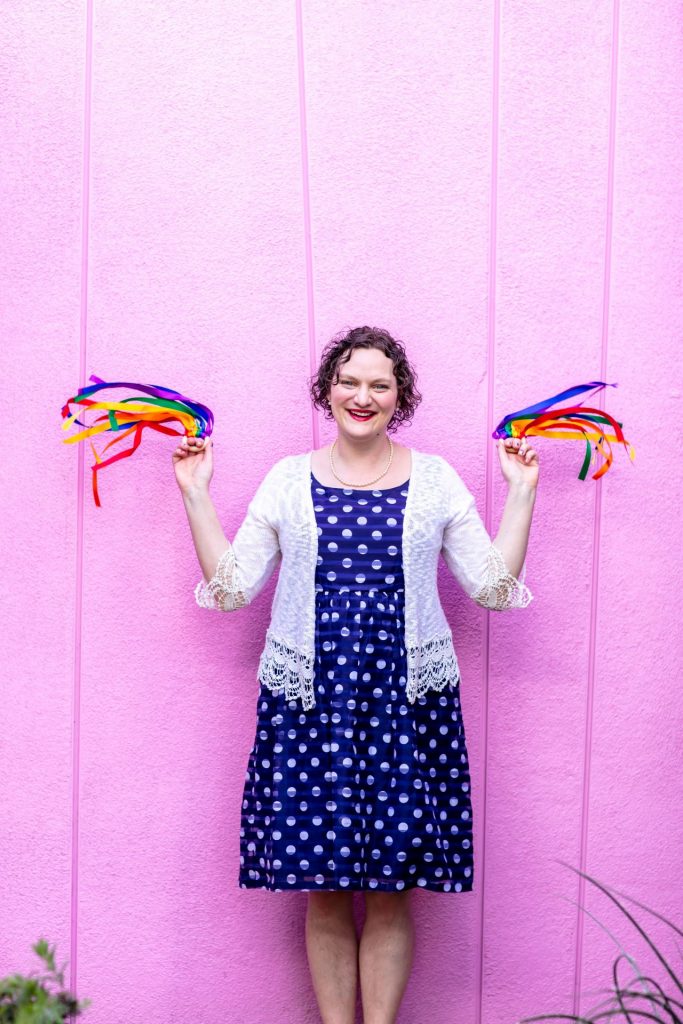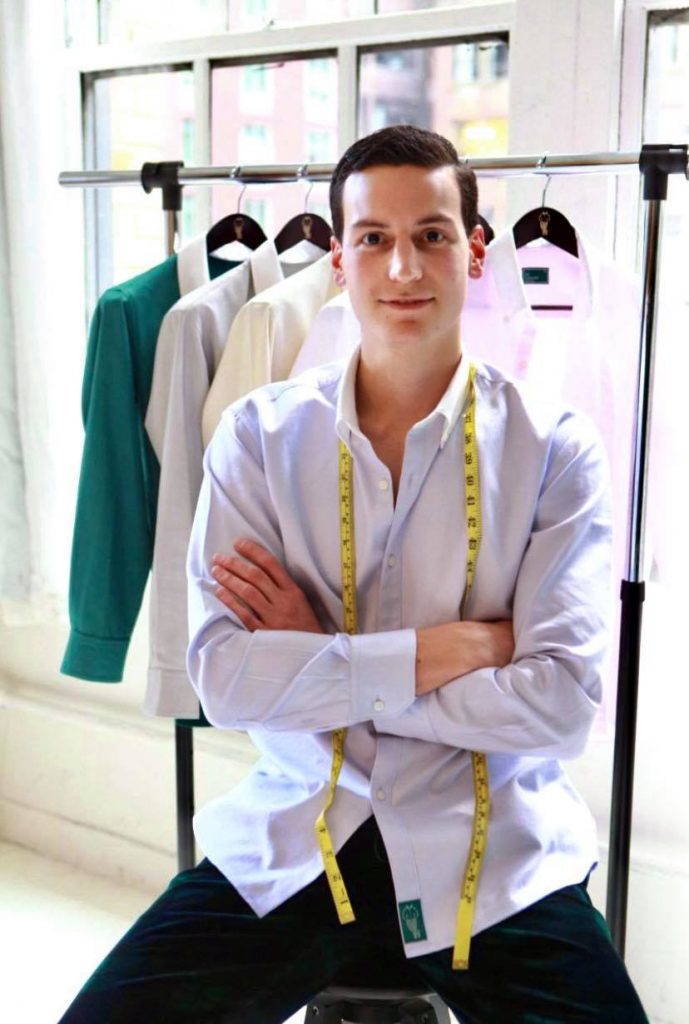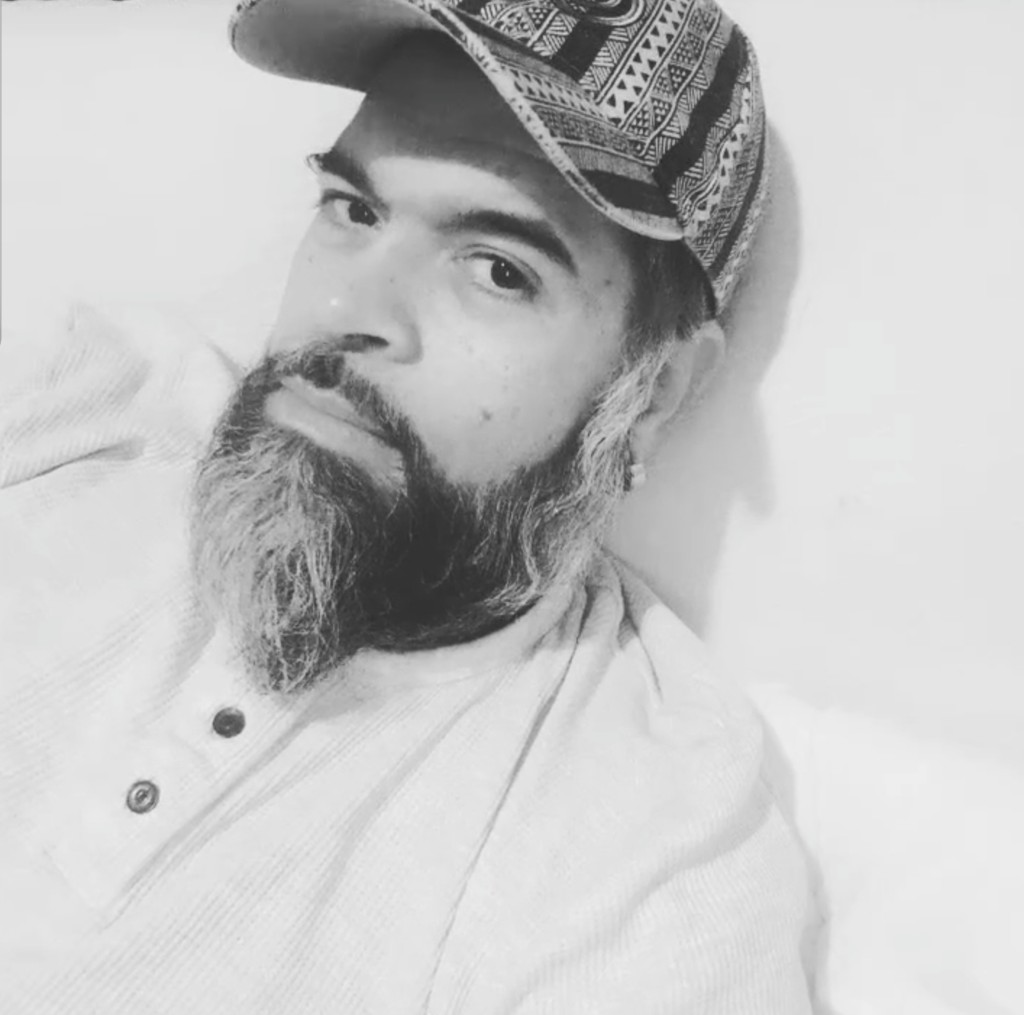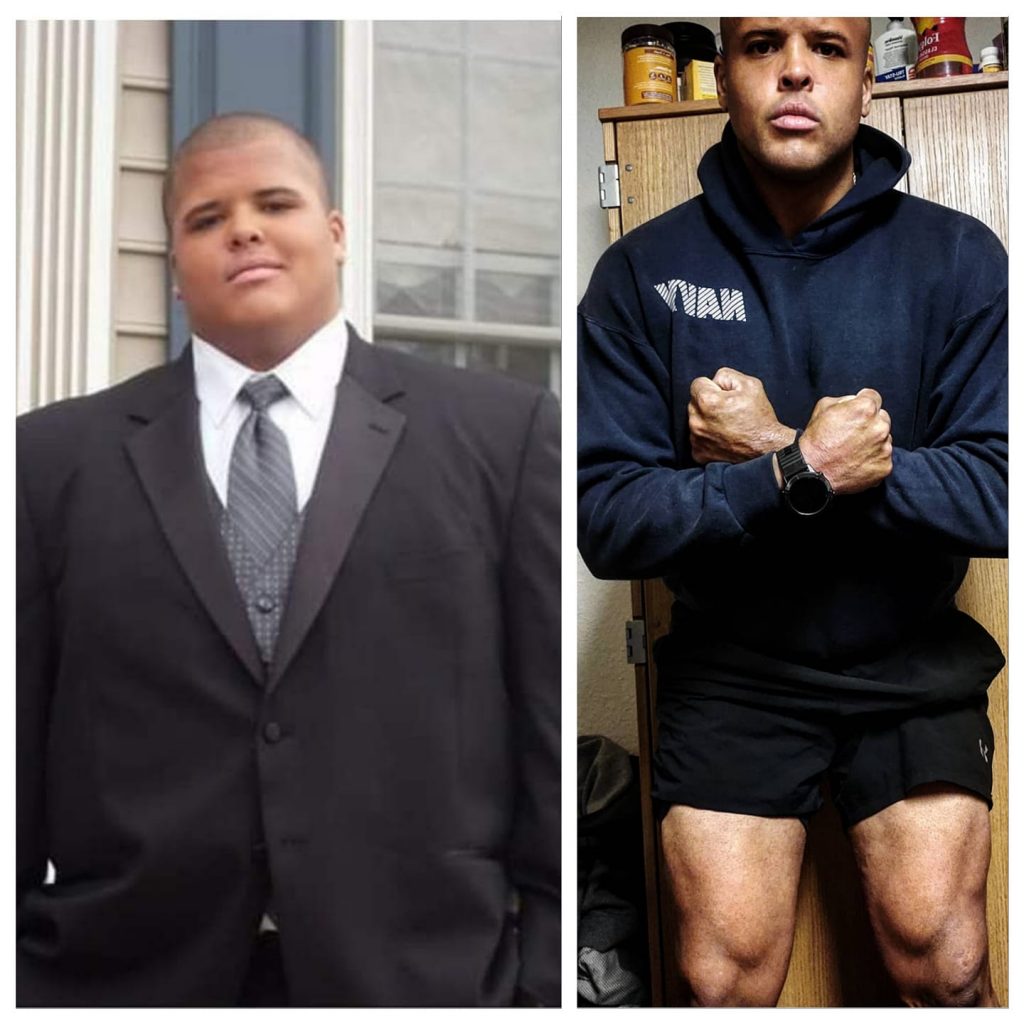Ruth Rau saw the opportunity when the pandemic started. Her toy company, Mouse Loves Pig, has since addressed the needs of young children who are afraid to wear masks. She shares more in this heartwarming episode.
TAMAR: Hi, everybody. Today we are in Episode 31 and I have Ruth Rau here who is from Virginia. So yeah, it’s amazing. Somebody else in my time zone. Thank you so much for joining.
00:33
RUTH RAU: You’re welcome.
00:34
TAMAR: So yeah, tell me a little bit about who you are, where you come from, and all the things,
00:39
RUTH RAU: Like you said, I’m Ruth, and I’m a toy maker. I run an independent toy brand. We specialize in screen free toys for kids to encourage imagination and creativity. And I actually came around to this in kind of a strange way. I’m an architect by training, and I’m a licensed architect and still have a license. And I lost my job when I had my first child nine years ago. And through the course of being an unexpected stay at home mom, about a year into my son’s life, his favorite teething toy got recalled for lead paint. And like any self-respecting first time, Mom, I completely panicked and googled everything, and started learning about toy safety and how in the world could this have happened and what’s in our toys. And I discovered that toys kind of have a little bit of a design problem right now. There’s a lot of plastic, there’s a lot of chemicals, there’s a lot of buttons and batteries, and blinking lights. And I was learning that all of that is developmentally completely inappropriate for small children. So, I started designing my own toys for my kids. And a couple of years into my second son’s life. A friend saw one of the toys I designed and said, oh my goodness, I need three of those for all of my grandchildren. And so, I started learning about becoming a toy brand. And here we are.
02:14
TAMAR: That is so cool. That’s an amazing story. Tell me, what’s the name of the company? What’s the brand?
02:21
RUTH RAU: Mouse Loves Pig.
02:23
TAMAR: Mouse Loves Pig. Cool. mouselovespig.com. Right?
02:26
RUTH RAU: mouselovespig.com.
02:27
TAMAR: Very, very cool. I would ask you so many questions like your supply chain challenges. But I’m not sure if that’s within the scope of this particular podcast.
02:38
RUTH RAU: Oh, my goodness, let’s just say that everything was difficult before the pandemic. And in the past four months, my supply chain has completely changed. It has been an exercise in flexibility.
02:51
TAMAR: Yeah, well, it’s amazing that you’ve pivoted. You mentioned a little bit before we started that you kind of had to pivot off slightly. So, tell me a little bit about what you’re doing right now.
03:05
RUTH RAU: So, in February, most of my manufacturer was in Sri Lanka. And in February they shut down because of the pandemic. And so, all of a sudden, I had to scramble and think oh, no, what am I going to do for the holidays? Because in the toy industry, you put in an order in like February, March, and you’ll get the finished product around July, August, which is perfect for the holidays. And so, they shut down and I realized, oh no, I’m not going to be able to put in my order, what’s going to happen? And then here in Virginia, everything here shut down in March. And a friend of mine said, Oh, no, there’s a shortage of PPE, personal protection equipment for our health care workers. People around the country are making cloth masks. Hey, Ruth, you know all about fabric? Can you help us do something with that here in our area. And so, I accidentally became integrally involved in a volunteer effort to make masks for our health care workers. And this absolutely amazing groundswell of support came, people came out of the woodwork and our little volunteer organization made and distributed I think over 30,000 masks both to the hospital and to healthcare workers in our area in the course of like, six weeks. And so, I went from, okay, I’m a toy maker to oh, my goodness, I’m a mask maker, and I’m a volunteer organizer. And how did this happen? And because I make toys, people started asking me oh, do you make kids’ masks? So, after we made sure that our local health care workers were covered and had the cloth masks that they felt they needed I started designing and figuring out how to do that mask for kiddos. And so, that has become a huge pivot and shift during this pandemic, not just masks for the kids, but because we’re a toy company there’s also a toy mask that we’re putting together with it. And what I’m learning and what I’m finding from parents, just like my kids, they didn’t want to wear masks, and the masks are uncomfortable, right. Like we want them, we think they’re a great idea. They’re going to keep our neighbors and our friends and family safe from our germs. But nobody wants to have something on their face. It’s just not comfortable. And even more so for children who barely even understand what germs are, or how sickness spreads. So, when I made my children’s masks, I made some matching ones for their favorite stuffed animals. And suddenly, mask making wasn’t this weird, scary, uncomfortable thing. Suddenly, mask making was an opportunity to play. And kids learn best through play. And so, all of a sudden it went from I don’t want to wear this, I’m going to take it off 15 times while we’re at the grocery store, it changed from that to my stuffed animal is coming to the grocery store with us. And we’re both going to keep the mask on the whole time. And I’ve had so much feedback from parents telling me the same thing that oh my goodness, just the simple addition of a matching mask for their favorite toy is completely changing how kids are looking at mask wearing. So that’s been how we’ve as a toy company, how we’ve shifted to try to help support our parents and our customers in the things that we need to do now that there’s this new normal.
06:33
TAMAR: What a beautiful story. I love that. It’s funny because I see people definitely creating masks. In Facebook, everybody’s creating masks, and Nerys the one making for children. But that concept of doing it for your stuffed animal is brilliant. I hope you patent the idea. But I’ll definitely be passing that around because I’m a complete huge advocate for masks. I mean, I had this conversation last week in a podcast, I hate making these podcasts political, if you will, because people think that masks is a political agenda. And it’s really not. And it’s just amazing. And I love how you’re making it like minimal friction. I have young kids and I mean, thankfully they do it because they they’re all doing it. I mean, because the siblings are doing it. So, it makes it easier. But it’s a lot more, it’s just so much more difficult in general to understand to rationalize and maybe I’m wrong. You also have more than one child. But you’re all alone and socially you’re not exposed to the same type of well, social exposure that used to have.
RUTH RAU: Right.
TAMAR: So I love it. I love it. I’m going to need some photos of this so I can promote that. I think it’s great. So yeah, I want to talk a little bit about your story. A big premise of the Common Scents podcast is your rise above adversity. And I would love to get that a little bit from you if you can share.
08:25
RUTH RAU: Oh, good. I mean, in the past four months, we’ve all had a heck of a lot of adversity. But as far as the beginnings of mouse loves pig. Like I said, I started the business, but it was at first out of this necessity to create. I mean, again, I’m an architect, and to be suddenly out of work, when I had my child, it was not my intention to not go back to work. It was always my intention to be a working mom. When that completely disappeared, for me, I didn’t quite know what to think. It was not my plan. And so, I had a lot of adjusting and shifting to do in my heart and in my mind. Okay, now instead of being working mom, Architect Ruth, I’m just Ruth. And so I realized that I was very passionate about childhood development, I’ve always loved to play and I’ve always loved to be playful. And I was always in my firm that I worked for the person that kept asking questions like, why can’t we do this crazy, curved, wonderful thing that is going to inspire people. And then I discovered play and toys and realized, oh, there’s this whole industry out there where people design things to play with. I looked at it as a design challenge. I looked at trying to figure out if children are my clients what is it that they need? What is it that helps them do their job, and their job in childhood is developing their brains and developing their creativity and developing those thinking muscles that are going to help them be the change makers of tomorrow. And it was a lot of fun. It is a lot of fun to design new toys and to watch how children play. And I realized, somewhere in the first year of designing toys for my kids, that the battle as a woman in architecture, is a battle for every woman in the design field. It is a battle to be on the jobsite to just be female in that male dominated industry. And I learned through designing toys that designing toys are developmentally appropriate and good for children. And we’re not even going to get into the whole labor issue with where toys are made and how they’re made. But just learning about all of that, and realizing if I only have one battle to fight, if I only have enough energy for one battle in this lifetime, I want it to be the battle for our children, I want it to be the battle for play, I want it to be the encouragement of creativity and imagination and just not taking life so seriously. Because at the end of it, its relationships and its ideas, and it’s connections with other people that are important, not milestones and developmental things to achieve and levels up. So, I think through losing my job and discovering how much I love design in general. I’ve got so much more peace about about the battle that I’m going to be fighting for the rest of my life. And this one’s a fun one. It’s a lot of fun.
12:02
TAMAR: I mean, you’re basically become an architect of the kids’ stuff, like you’re owning the kids space. And I love that. And I think that’s great. And I mean, like just hearing what you’re saying, you’re impacting the lives of young minds, it’s a much more fulfilling type of experience, you can reach so many more people. So, I think that’s great. And I applaud you for being able to do it.
12:27
RUTH RAU: Thanks.
12:28
TAMAR: Yeah. So, I guess I’ll go into the next question. I know you might laugh, I’m sorry, if you do. I know right now the context of how we’re trying to live right now has been completely disrupted. And we’re not doing the things we used to do. I put on 25 pounds, I’m trying to lose that weight right now, which is killing me, right. And I’m doing things the ways I would never have otherwise done and I’m making do but for you yourself, what is like your self-care. What does that look like?
RUTH RAU: (laughing).
13:16
TAMAR: Yep, go ahead, laugh. Some people can’t . And if not, you don’t have to talk about it. Now you can talk about the before and maybe your goals, because I will tell you something for myself personally, when I express intention before I start, and if I continue, and I keep that intention, in my mind, I usually pull through, right? So, try to do that with that mindset. Talk to me,
13:41
RUTH RAU: Oh, self-care. Obviously, as somebody who is a mask maker in this time, there is a lot of demand. So, I’ve been working way too much. But also I think a lot of parents are probably feeling the same thing that oh, no, now I’m working from home. And I’m caregiving. And I’m trying to teach and I’m trying to make sure that my children stay fed. And all of the support systems that we’re used to having are gone. And so, it’s been challenging to make the time and I’m not going to say find the time because if I look for it, I’m never going to find it. But I it’s been challenging to make the time to unplug and to relax, and to step away from the work and the stress and the worry. So, I think the most effective self-care that I’m practicing right now is unplug. And about every other day, I just unplugged the phone, I unplugged the computer, I’m shutting everything down. And I’m not looking at the news. I’m not looking at social media. And I’m not looking at all the things that I could be doing or should be doing and I’m just getting offline. So that’s one. Another is extra snuggles with my kiddos, which I know sounds a little strange because we’re with them 24/7 right now. But what we as a family have realized is that even though we are thrown together, we homeschool and work from home most of the time. So, the change in our lifestyle has not been as drastic as it has been for other people. But because of the increase in work, we are finding that we’re not connecting as much as a family as we were pre-pandemic. So, I’ve been trying to be very intentional about hey, boys, because I have two little boys, they’re seven and nine. Hey, boys, let’s sit on the couch and watch a movie together and snuggle and just be close. Let’s go outside and play in the sprinkler, or let’s say have a board game, even though they make me want to. Sometimes they just make me really irritated when I’m playing board games with small children. But that time to connect as a family has been really good for my mental health, just to cut through that ever present mom guilt. And just to give us that opportunity to say what things are strange, but we are okay. And I think that goes back to my love of connection and imagination as a family. We just need that time together. And then for me personally, I’ve been taking a lot of baths just after everybody goes to bed. That’s my de stress and my downtime is to put some fizzy something in the bathtub. And again, unplug, turn off. This is my quiet space that nobody can come into. And that’s been really good for my mental health too.
16:46
TAMAR: I love it. I love it. I think that’s great. I think the emphasis on you’re doing exactly what you need to do. And it’s funny because I think I feel like in a way you’re like laughing because you’re kind of like, I don’t think this is enough. But don’t sell yourself too short. You did. You’re coping in your circumstances. And I think that’s the right way to go. I mean, some people aren’t, I can’t necessarily balance my children and work. I try throughout the day to like squeeze things in. But it’s not easy.
17:21
RUTH RAU: No, I almost feel like the word balance is misleading. Like, it makes us feel like there’s at some point, everything is going to come to rest. And because I’ve been working from home and started my business when my youngest was still in diapers, and my oldest was potty training, because apparently, I thought I had so much time at then.
17:45
RUTH RAU: But I’ve always thought of working and parenting more like juggling. When we say balance, we think of those scales that when they’re balanced, they stop moving. Whereas juggling, I’m just trying to keep the balls in the air. And that for me, that makes my mental health a lot easier to manage. Because I know that there’s only so many balls I can carry, there’s only so many balls I can juggle. And eventually, if I add too many, they will all drop. So, it makes it easier for me to say, there’s not a plate that I can put things on, there’s balls that I can keep in the air. And it’s been good for my mental state to edit how much I take on or don’t take on. And it’s also good because I’m recognizing that if I’m juggling all of these different balls, every now and then I just need to put them all down and stop moving. Whereas when I say oh, I need balance in my life, there’s this feeling that I should be able to continue carrying everything and still be at rest.
TAMAR: There was that whole thing, an article about balance that was written many years ago, I think by Anne-Marie Slaughter and it was like, in the Atlantic about women who can’t have it all. And it’s really one of the most profound things that I’ve ever actually read. I thought especially because her capacity, she was working for the White House, I think she’s on the staff, and to be present and being a good parent and also being able to perform is extraordinarily impossible; you can’t do it. And just now you add, let’s sprinkle in some pandemic here. And you’re like, you just can’t do it.
19:26
RUTH RAU: Oh, and by the way, you have to be a homeschool parent all of a sudden,
19:29
TAMAR: Yeah, yeah. I mean, it’s amazing. And that’s why everybody wants to like open schools again or they don’t want to open schools like it’s such crazy like this. I can’t believe we’re having these conversations. Can you imagine that last year, this time, we would be like, oh, what am I going to wear today? I mean, these are conversations. It’s insane.
19:49
RUTH RAU: But, like with my supply chain, a year ago it was oh yeah, we’re going to work with this fair labor company in Sri Lanka and I’ve got a supplier that does organic cotton out of South Korea, and this is normal. And this is the global economy. And right now, nothing is shipping anywhere because everybody is quarantined. And so, we go from oh, yeah, we’ve got this wonderful global economy to oh, no, there’s shortages of everything everywhere because people are staying home. It’s been so much to take in mentally and emotionally.
20:25
TAMAR: Yeah, I actually launched a business in the middle of the pandemic. I’m insane.
20:32
RUTH RAU: Congratulations.
TAMAR: Thank you, thank you. Mine is fragrance for self-care and mental health and wellness. It’s like that was the right time to launch. But I had conversations for over a year with a provider, my bottler. And when I was preparing to get a sample of what we finally after so many months of discussing I was comfortable with, said, oh, our factory is now a PPE factory, you’re going to have to pay this amount of money to accelerate your production. I’m like, so that means with my minimum order quantities, it’s not even worth it. So, I had to shift all of my supply chain as well to the United States people, like a company that’s specific to bottling, especially when you’re trying to do China, they like, on demand, switch up their factories. So, you don’t have that issue. But you have like a similar issue. Yeah, the pandemic has totally disrupted the way we live right now. So yeah, just going back to masks, I mean, the fact that you’re still doing it, of course, it’s your business now. But I actually had a friend last week who said, I’ve been making masks for four months now. I’m taking a break, she said, she couldn’t do it anymore. It’s just you make it full time. And it’s full time and she’s always posting and obviously, people are always buying.
21:55
RUTH RAU: I’m glad that there’s something that I do, I think the Lord knew that I needed to do something in the middle of all of this craziness. And having something to do and feeling useful and feeling like I’m contributing positively again, that has also been just immense for my mental health during all of this craziness. But even more than that, I think shifting to how to support the parents and how to support their families and how to support their kids and trying to take everything that I love about my business, which is the creativity, the imagination, the connection between caregivers and children. And to be able to lay on top of that, okay, what are they dealing with, right this minute, what do they need from me right this minute. That has been in the past four months, such an eye opener about serving my community. I hate to say it’s been such a positive thing, because it’s such a terrible thing, that I’ve been so grateful that the skills that I’ve been given have been so useful.
23:07
TAMAR: Yeah, that’s great. It’s so funny that you say it’s a positive thing. And it’s a terrible thing. And I totally get that. So, I’m going to share a very weird but real story that happened to me. I’m a member of a group on Facebook, or I was a member of every one on Facebook like eBay sellers. And somebody had said that COVID is great for my business right now. And I appreciated his sentiment, but the one of the moderators, one of the admin of the group had said, no one should be happy of what’s going on in COVID. So, she shut down the thread. And I had messaged her privately very quietly, saying, COVID for me, has bought my community together. And I totally understand your sentiment, but from other people, it’s not just about that. And I think that coming harsh, coming hard at him was not like the way to do it because some people are coping in their way. And she actually, like, a message that I sent her, ended up blocking me on Facebook and banning me from the group. And when I tried to appeal to the other moderator who I have a relationship with, she’s like, um, this is the best moderator I’ve ever had. Like, unfortunately, I’m starting to realize that this particular pandemic is really polarizing people who have community, feel very good, and they feel comfortable within their community. But then there are other people who aren’t so I can give you an example. For example, another neighbor of mine who I tried to kind of bring into our online WhatsApp group, and I had seen him down the block and I said hello to him. And I said, I’m going to maintain my distance, of course, but I don’t think I’m a threat to you because I had the virus in March. And he went off on me, like, I’m seven years old, my mother in law is 96. And I felt so bad for him. And I felt embarrassed, I’m trying to give him peace of mind. But he was like, I just studied vaccines, and I’ve worked in infectious diseases, and we don’t know anything. And I’m just like, you’re probably right. And I respect that. But I just wanted to make you feel better. Like, I just wanted to give you peace of mind that for me, as opposed to potentially somebody else, that while I’m still donating plasma, I have antibodies. I’m obviously not going anywhere, but just to respect your space.
25:47
RUTH RAU: It just goes a long way.
25:49
TAMAR: Yeah. And then I sent a message to his wife, and I said, I’m really sorry if your husband got mad at me. I believe and thought, I realized you guys are feeling isolated. And I think that really, that was sentiment from just feeling all alone. And I feel very bad for them. And I wish I can do more. Like, I’m still embarrassed, I think he’s going to want to avoid me forever. He uses my driveway as a shortcut to go to places. I don’t think he’s going to use it anymore. But I just felt bad and that’s the thing. I think the Coronavirus is bringing out the best in people and also the worst in people. And I wish we can just skew toward being there for each other in a way that’s important. And I think you’re doing what you’re doing in terms of making masks and helping people in that capacity. And hopefully, no one’s coming out at you saying, oh, my God, we should make a mask, you shouldn’t wear a mask and all those things.
26:50
RUTH RAU: Oh, I get the hate mail all the time.
TAMAR: Oh, it’s Crazy.
RUTH RAU: Yeah. So, there’s hate mail and emails coming in about the masks. And then we also as a toy company, one of the toys that we make is a toy for diversity. It’s a little rainbow ribbon, one that has all sorts of different skin tone colors on the wand. And so, that’s a big issue right now, too. But we’ve been making this toy for over a year now. And just the vitriol and the hate that comes out when I post about that toy. And I’m all the time blocking comments and blocking just haters, people that are angry. I don’t have the mental time, energy or effort to try to educate you about why children need to see other children that don’t look like themselves. So, I’m just not even going to engage. That’s myself. I don’t even engage.
27:42
TAMAR: Yeah, I don’t know sometimes. Yeah, sometimes it feels better to self-engage. Like, obviously, if I ignored that particular interaction that I had with my neighbor, I wouldn’t feel good. I don’t think there’s any way to feel good about how these things are going on. But yeah, not engaging because that’s just making its drama. I mean, I don’t know where human nature is polarizing. So let me ask, let me shift into the final question going back to you, and this is sort of the common sense segment of the podcasts. If you can give an earlier version of yourself some advice, what would you tell her?
28:26
RUTH RAU: Stop being so scared (laughing).
28:31
TAMAR: Usually I mute this and I wait, like, I sit there and I’m waiting for you to like, respond. And you just had a response right away and I like that. So, is it your fear to begin, maybe delve into that a little bit?
28:47
RUTH RAU: I think, not so much my fear to begin, but my fear to be wrong. As a younger person, as a new mom, when I was first in my field as an architect, there was just a lot of fear of, what if I’m not good enough? What if I’m not creative enough? What if I make mistakes? What if? What if, what if, what if, what if, what if. What if people judge me for my opinion, and I think the older I get, and I’m on the opposite side of 35. So, the older I get, the less I care about being wrong. Like, if masks are wrong, I don’t really care. I’m going to make them. They’re making kids feel better. They’re making parents feel better. It’s a good thing. If screen free toys turn out to be wrong, I don’t really care. My kids love them. They make the behavior in our household better. I’m going to spread that and hopefully help other families have the same success that we’ve had as far as moving forward in the business and making big, big decisions with money and with how to run the business. I can hem and haw all day long. No, I don’t want to make a mistake and choose the wrong manufacturer or choose the wrong supplier. And you just need to make a choice, just move forward. So, I think telling my former self, just stop being so scared of being wrong and make a decision. And if you’re wrong, you’re wrong. Failure is one of the best teachers in the world. If you’re doing it right, you’re not going to make the same mistake twice.
30:27
TAMAR: I love it. I love it. Awesome. Awesome. Well, thank you so much. Tell me where mouseloves pig.com. Besides that, where can we find you?
30:39
RUTH RAU: Well, mouselovespig.com , and I’m on Instagram and Facebook. Also, under Mouse Loves Pig. And a sweet little story because I know people always ask where did you come up with the name? Again, with the whole imagination and connection as a family every night at bedtime. We sing songs and have snuggles before bed. And when my children were small, we would sing The Farmer in the Dell, a big favorite when I had toddlers because all the animals make noises. And so, my husband went in to do it. It was his turn. So, he went in and sang The Farmer in the Dell, but he forgot the words. So, he sang this little sing song story about the farmer and the mouse who ate the cheese. And the next night it was my turn to sing songs. And I started singing The Farmer in the Dell and I started singing the real words and my boys stopped me said no Mama, we want the story Farmer with the Mouse. So, that’s the mouse. And then my youngest son’s favorite lovey is a stuffed pig. So, Mouse Loves Pig is kind of a nod to all of our adventures as a family.
31:43
TAMAR: I love it. It’s so great. Yeah, we have a bear, an elephant, a doll.
31:51
RUTH RAU: Oh, sweet.
TAMAR: Yeah, yeah. Awesome. Well, thank you so much for sharing yourself, your time, your story. I think it’s great. I think the timing is right. And you did the right thing. So, thank you again.
32:06
RUTH RAU: Thank you.
Podcast: Play in new window | Download (Duration: 32:15 — 36.9MB)
Subscribe: RSS






